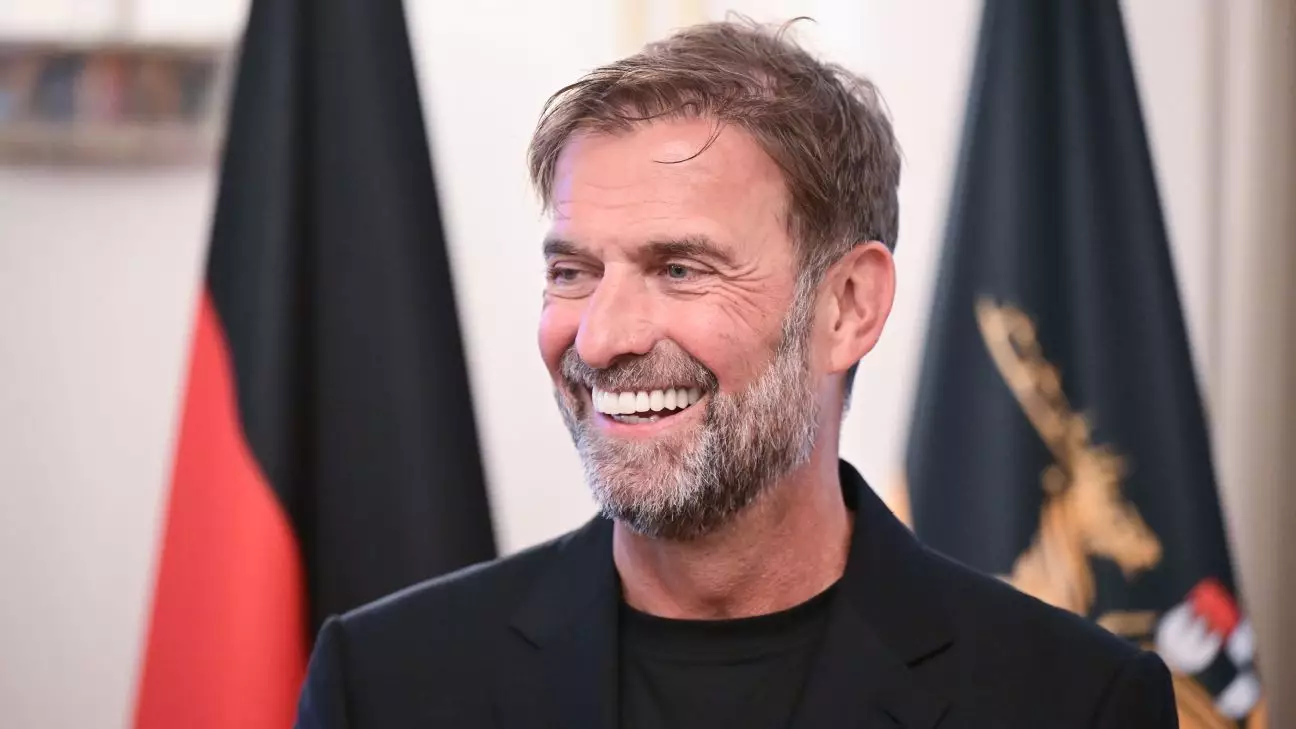In a world where football has merged into a high-stakes business, recent developments surrounding Jürgen Klopp’s new role as „global head of soccer“ for Red Bull have sparked significant debate. While his face continues to dominate the airwaves in Germany, his shift towards a brand often criticized by traditional fans raises questions about loyalty, values, and the evolving nature of the sport.
Jürgen Klopp has not been a full-time member of a German football club for almost ten years, yet he continues to capture the hearts and screens of football aficionados across the nation. His jovial demeanor and hearty laughter make him a relatable figure, not just as a coach but also as a brand ambassador for various commercial interests. From beer to exercise machinery, and now electronics, Klopp has become a staple of German television. So, when news broke that he had accepted a high-profile position with Red Bull, it stirred strong reactions, particularly from die-hard football purists.
The reality is that Red Bull is not everyone’s cup of tea in German football. Seen as a pariah due to the unconventional manner in which the brand entered the footballing world—namely, by purchasing a lower-division club and establishing control without adhering to traditional fan membership structures—many supporters question Klopp’s decision to align himself with RB Leipzig and its sister clubs. This organization’s foundation has instigated rifts amongst traditionalists who feel that the essence of German football is being compromised. That Klopp, widely adored and celebrated as ‚the people’s coach,‘ would partner with Red Bull has left many questioning his commitment to grassroots football.
The reactions emanating from England and Germany provide an intriguing juxtaposition. In England, the sentiment appears supportive of Klopp’s autonomy to choose his next career step. „Good luck to you,“ they say, hinting at an understanding that the football landscape is ever-changing. In contrast, Germany has reacted with a greater degree of skepticism. The editorial from Kicker, which succinctly stated „Kultur-Schock,“ illustrates the cultural friction that this alliance has incited.
A significant percentage of Kicker’s readers voiced disapproval of Klopp’s decision, a stark contrast to the echoes of support heard across the English footballing community when similar decisions have been made. Former Eintracht Frankfurt sporting director Fredi Bobic argued that modern football demands that we embrace newer structures and methodologies, pushing back against the nostalgia that often dominates discussions among die-hard fans. This commentary raises a vital question: are we stuck clinging to archaic notions of football identity, or is it time to evolve?
As Klopp delves into his new role, he may find that his traditional values as a coach will be at odds with Red Bull’s commercial strategy. Football is no longer just a sport; it has transcended into a global industry, where TV rights and sponsorship deals dictate team fortunes. Interestingly, while Klopp is embarking on this journey, the German national team under Julian Nagelsmann is demonstrating a more attractive and modern style of play that resonates with contemporary fans.
This raises another layer to the discussion: what does it mean for someone like Klopp, who has built his reputation on emotional connections and communal values, to work for a corporate giant? Unlike Klopp, Nagelsmann seems unfettered by commercial constraints, taking a fresh approach that emphasizes meritocracy, demonstrated by the introduction of promising talents based solely on performance, rather than traditional affiliations.
For Klopp, the next chapter will undoubtedly be demanding. He may find himself navigating a labyrinth of expectations from both the brand and disillusioned fans. However, this shift could be an opportunity for him to reshape how the corporate world of football engages with the sport’s traditional roots. As German fans grapple with the implications of his move, Klopp’s ability to maintain his authenticity while contributing to Red Bull’s broader vision will test his mettle.
While Jürgen Klopp’s decision to align himself with Red Bull has created dissension among traditionalists, it also reveals a significant inflection point in the relationship between commercialism and the sport. The question remains: Is this the dawning of a new age in football, or the beginning of a legacy tarnished by corporate affiliations? As the landscape of football continues to change, Klopp’s journey will serve as a critical litmus test for our collective understanding of the beautiful game.


Napsat komentář